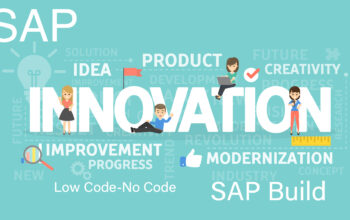Introduction
SAP HANA and SAP S/4HANA are two of the most widely searched SAP solutions, yet many users struggle to understand their differences. While SAP HANA is an in-memory database platform, SAP S/4HANA is an intelligent ERP suite built on HANA. This guide compares their features, benefits, and use cases to help businesses make informed decisions.
What is SAP HANA?
SAP HANA (High-Performance Analytic Appliance) is an in-memory database for real-time data processing. It accelerates analytics, transactions, and application development by storing data in RAM instead of traditional disk storage.
Key Features of SAP HANA:
✔ In-memory computing for faster data processing
✔ Advanced analytics with machine learning integration
✔ Multi-model database (relational, graph, document)
✔ Cloud and on-premise deployment options
What is SAP S/4HANA?
SAP S/4HANA is the next-generation ERP suite built exclusively to run on the SAP HANA database. It simplifies business processes with AI, IoT, and advanced analytics.
Key Features of SAP S/4HANA:
✔ Simplified data model (eliminates redundancies)
✔ Real-time analytics with embedded AI
✔ Fiori-based UX for a better user experience
✔ Cloud, hybrid, and on-premise deployment
Key Differences Between SAP HANA and SAP S/4HANA
| Feature | SAP HANA | SAP S/4HANA |
|---|---|---|
| Type | In-memory database | ERP software suite |
| Purpose | Data storage & processing | End-to-end business operations |
| Deployment | Runs on-premise or cloud | Requires SAP HANA as its database |
| Functionality | Optimized for analytics & speed | Includes finance, logistics, HR, etc. |
| Migration | N/A (standalone) | Requires migration from SAP ECC |
Which One Do You Need?
- Choose SAP HANA if you need a high-speed database for analytics and custom applications.
- Choose SAP S/4HANA if you want a complete ERP solution with AI-driven insights.
Conclusion
SAP HANA powers real-time data processing, while SAP S/4HANA revolutionizes enterprise resource planning. Businesses looking to modernize their ERP must migrate to S/4HANA, while those needing a robust database can leverage SAP HANA.
Need help deciding? Consult an SAP expert to determine the best solution for your business needs.




